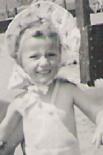Update: I put this post up then almost immediately took it down. It just wasn't right. But Dale's comment here, and Jessie's and Sonia's on the original post encouraged me to rework it - many thanks to them. It's a record of a visit made last July to a childhood haunt.

What brought me back were memories.
I hadn't been to Bradwell for years. It isn't really a beauty spot, just a small fishing and sailing village at the mouth of the River Blackwater in Essex - a lonely, remote corner of the world, frequented by a few holidaymakers partial to fresh air and no commercialisation.
It is also home to a now-decommissioned nuclear power station, whose brutal concrete bulk isn't out of place - aesthetically anyway - in this spare, almost bleak, setting. We used to take it for granted. Like other species, humans adapt.
The plan was to walk from the village along the sea wall to the ancient chapel of
St Peter on the Wall, which stands isolated and surrounded by fields at the very tip of the estuary facing the North Sea. As I set off heavy grey skies were being carried eastwards by a strong warm wind.
To the left, on the other side of the banks of shingle, cockle and oyster shells, the tide had retreated revealing an expanse of mudflats, a feeding ground for Brent geese and seagulls. The wind whipped up small wavelets on the surface of the water and rattled the furled rigging of the yachts at anchor in the harbour.
On the landward side the reeds rustled and sighed in the drainage channels. In the distance a tractor crawled along a farm track, the drone of its engine barely audible. Wildflowers - purple mallow, poppies and meadowsweet - bordered the wheatfields. Skylarks sang overhead or rose suddenly from the long grass as I approached. There are so many of them here. I'd forgotten that.
I took a deep breath of sea air and a gust of wind blew my hair over my eyes. I had decided to do this trip alone, but if I had wanted a companion it had already occurred to me that I might have had my work cut out to find one. Lonely mudflats on an overcast day aren't for everyone.
 The enemy has generally come from the east, from across the North Sea. The Romans knew this. They built a fort, at the eastern tip of the estuary against the threat from the marauding Anglo-Saxons. After their departure, in the seventh century a monk from Lindisfarne, St Cedd, constructed a church – my destination - using stones from the abandoned fort, and established a religious community.
The enemy has generally come from the east, from across the North Sea. The Romans knew this. They built a fort, at the eastern tip of the estuary against the threat from the marauding Anglo-Saxons. After their departure, in the seventh century a monk from Lindisfarne, St Cedd, constructed a church – my destination - using stones from the abandoned fort, and established a religious community.
In their turn the Danes sailed up the Blackwater to the little town of Maldon a few miles to the west, and defeated the Anglo-Saxons in battle; a poem of the time commemorates the bloody event. And latterly small concrete bunkers were built along the sea wall prior to World War II, now repositories for shingle and seagrass, for empty cigarette packets and discarded beer cans. 
For two hours or so the world consisted of the low scudding clouds, the sea, the fields. I met just three other people. It was unsettling to be here again - there is something about these wide expanses of sky that encourages self-examination. I did this same walk years ago with friends in bright sunshine, when the light was so penetrating that it conjured up an almost hallucinatory, out-of-this-world quality in the surroundings, every small detail clear and vivid ...
The chapel was empty. Given the plain, austere decor, not much imagination was needed to visualise the monks going about their business. Both they and the soldiers who preceded them would have needed to be hardy - in winter there are few colder and more desolate spots.
I stood and listened to the sound of the wind tugging at the stones and tiles. On occasions it died down and the silence was tangible.
****
Then something shifted. My own personal ghosts were starting to gather, joining those who were perhaps already in situ. Just a few miles away I had swum and played beach cricket and walked along the sea wall at dusk, part of a group of holiday friends, children and adults. As a child I had on the whole been happy here.
But it's really not a good idea to spend too much time with ghosts, even benign ones. You run the risk of becoming disembodied yourself. It was time to go home.
****
I'm thankful this place is so difficult to get to. I'm glad it has never been on the tourist map. I'm glad that the beaches are of shingle rather than sand and that there are mudflats at low tide.
I don't want it to be spoiled. Ever.
- Click on all photographs to enlarge.
- Photographs from the top: Sky, land and water; St Peter's on the Wall with the North Sea beyond; view looking out from the interior of the church. Follow the link in the body of the text for more photographs of St Peter's and information on its location and history.
- More about the nuclear power station.
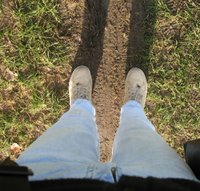 I love my jeans. All of them. But the pair I wore yesterday especially.
I love my jeans. All of them. But the pair I wore yesterday especially.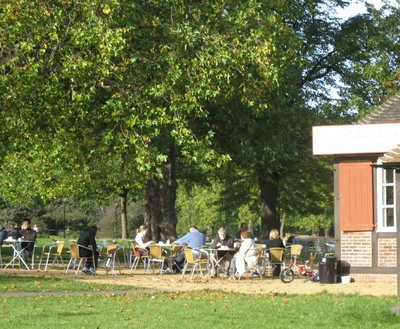
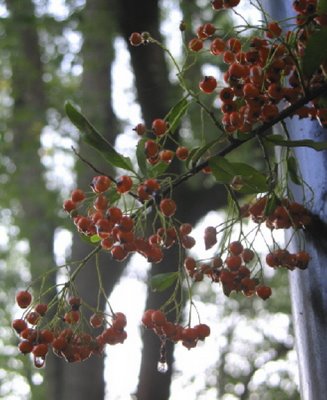
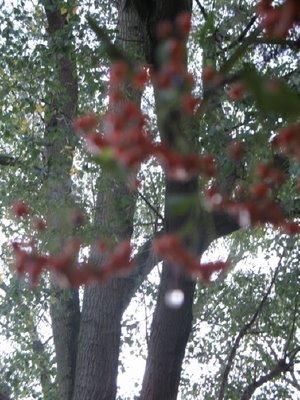




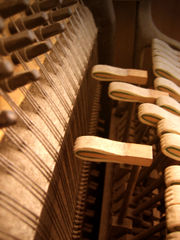
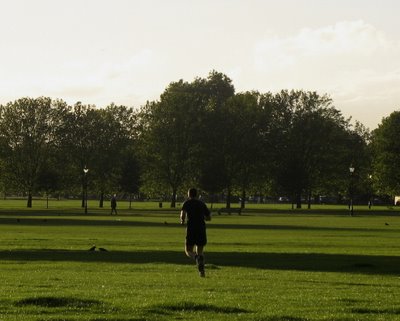
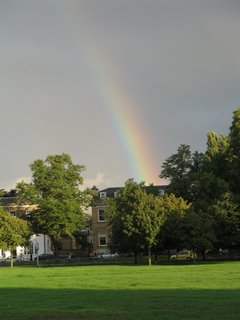
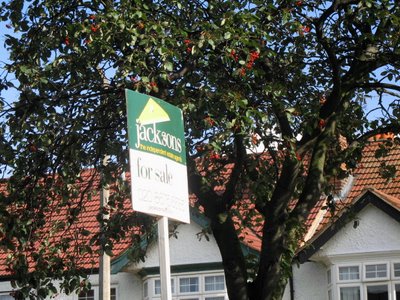 The viewings start tomorrow.
The viewings start tomorrow.